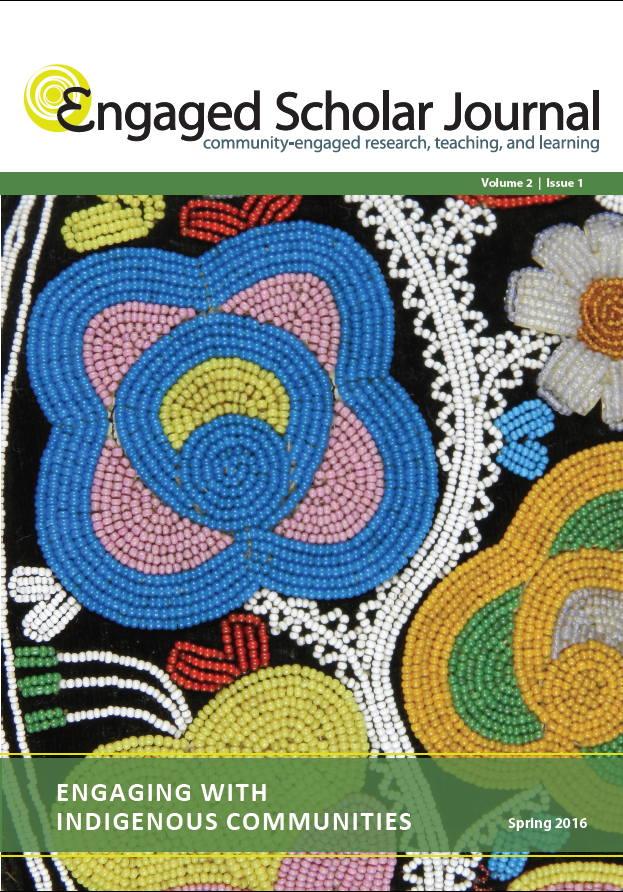Research as Reciprocity: Northern Cree Community-Based and Community-Engaged Research on Wild Food Contamination in Alberta’s Oil Sands Region
DOI:
https://doi.org/10.15402/esj.v2i1.201Keywords:
community-based monitoring, oil sands, Treaty No. 8, pollution, traditional land useAbstract
In this paper I suggest that it is possible to participate in research as an act of reciprocity; when a community asks a researcher for help on a specific topic, the application of that researcher’s skills can be one of the ways they show appreciation for being welcomed into a place. I also argue that a researcher needs to be sensitive to, and participate in, systems of respect and reciprocity belonging to the people, ancestors, and sentient landscape of the place they are doing research. I critique the extraction of traditional knowledge in the traditional land use consultation industry in Alberta, Canada that is used in place of the Federal Government’s duty to consult First Nations regarding their Treaty rights. As an alternative to traditional land use assessments I provide a description of the methods used in projects that test Fort McKay First Nation and Bigstone Cree First Nation’s wild foods for contaminants resulting from oil sands activities in northern Alberta’s Treaty No. 8 region.
Downloads
Published
How to Cite
Issue
Section
License
Authors who publish with this journal agree to the following terms:
- Authors retain copyright and grant the journal right of first publication with the work simultaneously licensed under a Creative Commons Attribution License CC BY 4.0 that allows others to share the work with an acknowledgement of the work's authorship and initial publication in this journal.
- Authors are able to enter separate, additional contractual agreements for the non-exclusive distribution of the journal's published version of the work (e.g., post it to an institutional repository or publish it in a book), with an acknowledgement of its initial publication in this journal.
- Authors are permitted to post their work online (e.g., in an institutional repository or on their website) after the publication of their work in the Engaged Scholar Journal.
- Please note that while every opportunity will be taken to ensure author participation in the editing process, due to time constraints final copyediting changes may be made before publication to ensure APA adherence throughout all submissions.




